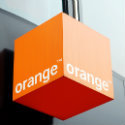
Also in today's EMEA regional roundup: Vodacom earnings flat; Tele Columbus feels the acquisitions benefit; European Commission seeks clarification on Yahoo email scan.
Orange Belgium is to upgrade its 4G network so that it supports the Internet of Things in 2017. The operator will invest in NB-IoT and LTE-M, which are both variants of the low-power, wide-area technology that is tipped to be a cornerstone of IoT networks. LTE-M and NB-IoT are both standards developed by 3GPP. Parent company Orange, the French incumbent, has turned to LoRa, a non-3GPP technology based on unlicensed spectrum, to address short-term IoT needs, but has previously flagged a desire to use cellular standards for IoT in future. (See LoRa May Not Be for Long Haul at Orange and How IoT Forked the Mobile Roadmap.)
Vodacom Pty. Ltd. , the South African unit of UK-based Vodafone Group plc (NYSE: VOD), saw service revenues grow by 5.3% year-on-year, though earnings per share remained flat at 440 cents, Reuters reports. In Tanzania and elsewhere, the operator saw its subscriber numbers hit by a clampdown on unregistered phones -- active international customers decreased 11% to 27.9 million during the period.
Tele Columbus AG , Germany's third-largest cable operator, recorded "normalized" EBITDA OF €63.7 million (US$68.5 million) for the third quarter, up 72.6% year-on-year. Revenues grew by 59.9% to €118.2 million ($127.2 million). Part of this growth was down to the "consolidation effect" of the integration of broadband providers Primacom and Pepcom.
The European Commission is looking for clarification from US authorities regarding a 2015 court order that forced Yahoo Inc. (Nasdaq: YHOO) to scan all incoming customer emails for a "digital signature" linked to state-sponsored terrorism, Reuters reports. Yahoo was at the center of a row over misuse of customer data which resulted in the ditching of the so-called Safe Harbor data transfer arrangements between Europe and the US in favor of the Privacy Shield protocol. (See Eurobites: Trump Won't Trash Privacy Shield, US Officials Predict, Eurobites: Privacy Shield Gets EU Go-Ahead and Eurobites: 'Safe Harbor' Heads for Calmer Waters.)
Emirates Integrated Telecommunications Co. (du) has teamed up with healthcare company Diabeticare to launch a pilot of a remote patient monitoring system, initially for du employees suffering from diabetes. According to the operator, last year there were more than million cases of diabetes in the UAE alone.
— Paul Rainford, Assistant Editor, Europe, Light Reading
Read more about:
EuropeAbout the Author(s)
You May Also Like




_International_Software_Products.jpeg?width=300&auto=webp&quality=80&disable=upscale)







